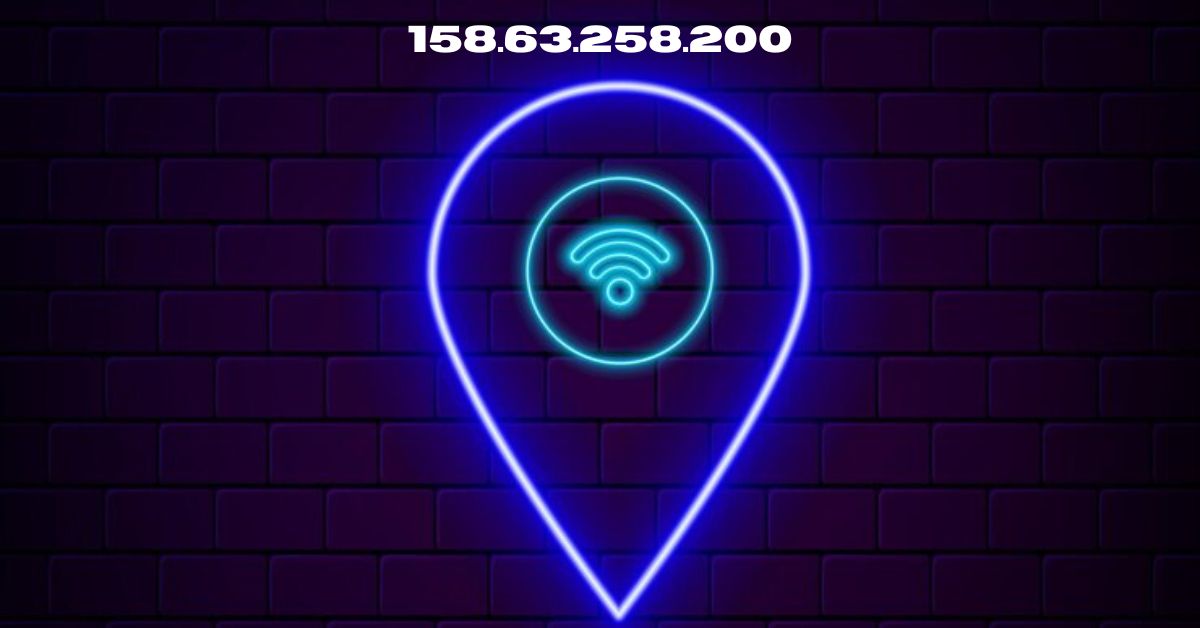Tech
What is 158.63.258.200 and Why It Matters in Networking?

When discussing networking, we often encounter strings of numbers separated by dots, such as 158.63.258.200. These seemingly random sequences hold a lot of significance in their respective contexts and are part of the backbone of how the internet operates. But what does 158.63.258.200 represent, and why is it important? Understanding this will not only enhance your knowledge of networking but also give you insight into how data flows across the web.
The Basics of IP Addresses
Before exploring the specifics of 158.63.258.200, it is essential to understand what an IP address is. An IP address, or Internet Protocol address, is a numerical identifier assigned to devices connected to a network. It acts as a virtual address that ensures digital communication is seamless, efficient, and accurate. Just like your home address helps postal services deliver mail, an IP address guides data to its intended destination.
There are two main versions of IP addresses in use today:
- IPv4: This is the older and more commonly used system, consisting of numerical sequences like 158.63.258.200.
- IPv6: With more devices connecting to the internet, IPv6 was introduced to provide a much larger pool of addresses.
The format of 158.63.258.200 indicates that it is an IPv4 address. IPv4 addresses are composed of four sets of numbers, each ranging between 0 and 255, separated by periods.
Breaking Down 158.63.258.200
At first glance, 158.63.258.200 may seem like just another series of numbers, but each segment of this address contributes to its overall function. IPv4 addresses are divided into network and host components, and their structure depends on the specific ecosystem they belong to.
For example:
- Network Identifier – The first few numbers in an IP address, depending on its class, represent the network portion. This determines the unique network where devices operate.
- Host Identifier – The remaining portion identifies a specific device, server, or endpoint within that network.
The address 158.63.258.200 would typically belong to a designated range under a specific hosting provider, organization, or ISP (Internet Service Provider). It may represent anything from an individual computer to a larger server handling various services.
Public vs. Private IP Address
It’s worth clarifying whether 158.63.258.200 is a public or private IP address. Public IPs are accessible from the wider internet, while private IPs operate within internal networks without direct access from outside. Based on its numeric sequence, it is appears to be part of the public IP range and is likely visible on the global internet. Such addresses are commonly used by websites, cloud services, or other externally visible systems to facilitate user access.
The Role of 158.63.258.200 in Modern Networking
The significance of 158.63.258.200 depends largely on its use case. Below are some potential scenarios where an address like it could prove pivotal:
1. Web Hosting and Server Identification
If 158.63.258.200 belongs to a hosting provider, it could represent the location of a web server. Think of a situation where users access a specific website through their browsers. The domain name—for example, www.example.com—is translated into a numerical IP address like this via the Domain Name System (DNS). This address points users directly to the server hosting the website.
2. Data Exchange in Networking
Addresses such as 158.63.258.200 facilitate communication between devices. For instance, in peer-to-peer networks, online gaming, or video streaming, understanding the IP address ensures that data is routed efficiently and without loss.
3. Network Security and Monitoring
Cybersecurity frameworks rely heavily on identifying IPs like this to monitor suspicious activities or prevent unauthorized access. Knowing the details of 158.63.258.200 could indicate its origin and help determine whether it poses a potential threat.
Tracing and Analyzing 158.63.258.200
Network administrators often need to evaluate specific IP addresses, including 158.63.258.200, to gain a better understanding of their nature. Using tools such as traceroute, you can follow the data’s path and identify where it fits into the broader network infrastructure. WHOIS lookup services can also provide ownership information, revealing the organization or ISP controlling this address.
Geolocation of 158.63.258.200
IP geolocation services can estimate the physical location of 158.63.258.200. Though not always precise, these tools help determine the country, city, and provider associated with the address. This can have practical implications in everything from analytics to legal enforcement when addressing cyber activity.
Dynamic vs. Static Assignment
Another factor to consider when analyzing it is whether it is a static or dynamic IP. Static IP addresses remain constant over time, making them suitable for hosting websites or other permanent tasks. Conversely, dynamic IPs change periodically and are commonly assigned by ISPs for consumer devices.
The Importance of Context
The relevance of 158.63.258.200 ultimately depends on the circumstances under which it is encountered. For instance:
- A business might use it for a cloud-based application ensuring global availability to users.
- An individual tracking down unusual behavior online might trace malicious activity back to 158.63.258.200.
Understanding the purpose and configuration of such addresses enhances transparency in digital interactions and helps prevent misunderstandings.
Common Challenges Encountered with IPs Like 158.63.258.200
Cybersecurity professionals often face challenges involving addresses like 158.63.258.200. For example:
- Blacklisting: If it sends spam or malicious traffic, it might be flagged or blacklisted by DNS-based blocklists.
- Misconfigurations: Incorrect routing configurations involving it could lead to service outages.
- Complexity in Management: With the growing use of multiple devices and IoT, handling addresses like 158.63.258.200 becomes more intricate.
Future Relevance of IPv4
Although addresses such as 158.63.258.200 are still in widespread use, the transition to IPv6 is gaining momentum. IPv6 offers an exponentially larger pool of addresses, accommodating the explosion of internet-connected devices. However, IPv4 remains pivotal, and addresses like it will likely remain relevant for the foreseeable future.
Conclusion
The IP address 158.63.258.200 is a perfect example of how structured numerical systems power global communication. Whether as a server address, an endpoint for data exchange, or part of a broader analytical framework, its role in networking cannot be overstated. By decoding and understanding such addresses, we can appreciate the intricacies of the internet and build more resilient, secure systems to keep the digital world running seamlessly.
Read Also: iCryptoAI.com Innovation AI-Powered Crypto Evolution















